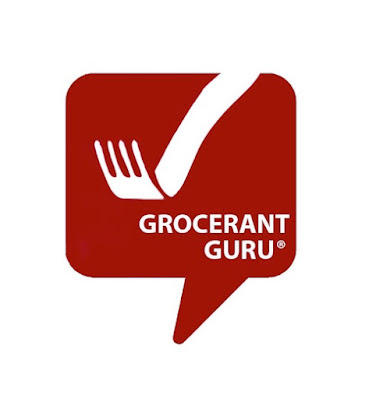Hand Held food for immediate consumption
has driven growth in the fast-food sector for forty years. Today there are 28.9 restaurants for every
legacy grocery store according to Steven
Johnson, Grocerant Guru® at Tacoma, WA based Foodservice Solutions®.
Remember yesterday’s blog? Gen Z consumers
had 66 fewer visits to restaurants in 2022 than in 2019. The fact is consumers have stocked up on
frozen breakfast foods as convenient meal and snack solutions during the
pandemic, and the habit appears to have staying power.
Anne-Marie Roerink, principal and founder
of 210
Analytics, stated, “When people work from home, they are taking a bit more
time and are less focused on the on-the-go portability,”... “Additionally,
breakfast foods have decidedly morphed into snacks for occasions throughout the
day, and that includes breakfast sandwiches, waffles and other items found in
the frozen food aisle.”
Consider that students have returned to
school and many workers have resumed their daily commutes, frozen breakfast
foods have continued to record strong sales growth.
So, for the 52 weeks through April 17,
sales of frozen meals overall were up 6.8% over year-ago-levels, fueled in part
by an 11.4% increase in frozen breakfast foods, according to data from the American
Frozen Food Institute. Over the past two years, frozen breakfast
food sales were up 27.4%.
Here is where restaurants have been hurt
as “Handheld frozen breakfast items with protein content have been very
popular.”
Although gains in several frozen
categories have been driven by inflation, breakfast foods have enjoyed both
unit and dollar sales gains, indicating growth in demand, said Roerink. Unit
sales of breakfast foods were up 2.7% in the most recent 52-week span, and up
10.5% during the last two years.
This is important, within frozen
breakfast foods, handheld items such as sandwiches or burritos have been the
biggest sellers, at $2.3 billion in sales over the past year and growth of
13.6%. Frozen waffles are the No. 2 seller among frozen breakfast foods, at
$1.1 billion in sales, up 4.9% year over year. Breakfast entrees, including
bowls, were up 13.4%, reaching just over $1 billion in sales for the first
time.
Cathy Bates, product business manager, at
UNFI Brands+, the private-label arm of grocery distributor United Natural Foods Inc., said the company
does not anticipate sales of frozen breakfast items to decline significantly
even as consumers resume some pre-pandemic work routines.
Bates suggested that retailers focus on
offering a diversified assortment to capitalize on consumer interest in
breakfast foods for new occasions, including mid-morning and late-day snacking.
Handheld frozen breakfast items that feature protein content have been “very
popular,” she said, adding that frozen breakfast sandwiches and wraps account
for almost a quarter of new product innovation in the category.
“Consumers are also looking to save money
across the store, and are more frequently turning to store brand or private
label products,” she said, citing UNFI’s
Essential Everyday brand.
Sales of Essential Everyday frozen
breakfast products have risen in double digits in recent months, Bates said.
The gains have been driven largely by the brand’s frozen waffle products, which
are available in in eight flavors including Blueberry, Buttermilk, Homestyle,
Cinnamon, Confetti, Chocolate Chip and others.
Bates said she expects retailers to
continue to add more space in their freezers for handheld breakfast items.
“Retailers will want to carry a mix of
core items as well as trending new items in breakfast entrées and frozen syrup
carriers [such as pancakes and waffles],” said Bates.
Convenience and taste have been the
strongest drivers of sales in the category, she said.
Consumers have also been seeking
better-for-you frozen breakfast solutions, Bates said, citing gluten-free and
organic frozen waffles under UNFI’s Wild Harvest label as examples.
Roerink also noted that the frozen
breakfast category has embraced several sales-driving dietary trends, including
high-protein/low carb content and plant-forward solutions.
Yet, there is more trouble brewing for
the restaurant sector. Reflecting the
diversification in the frozen breakfast category, Mosaic
Foods, which offers a plant-based, flash-frozen meal delivery service, is
planning to expand its frozen breakfast offerings this summer with a new line
of smoothies.
The new product will augment the
company’s popular vegan and vegetarian oat bowl offerings for the breakfast
daypart.
“We’ve found that high-quality,
protein-packed overnight oats and warm oats are a huge hit in the plant-based
community,” said Davis. “Many of our customers were already prepping their own
oats and have turned to our product as a way to get time back from the kitchen
while also leveling up their oat game.”
Each of the five varieties of oat bowls Mosaic
offers includes more than 10 grams of protein and can be ready to eat in under
three minutes, he said. Options range from sweet oat bowls such as Peanut
Butter, Banana, & Cacao to savory oat bowls such as Veggie Sausage &
Gouda.
Davis describes breakfast as the “perfect
way to start” for the 50% of consumers seeking to reduce their meat consumption
in 2022.
As consumers have begun returning to
working from offices, or have switched to hybrid office/remote working
schedules, many of Mosaic’s customers are actually ordering frozen meals from
Mosaic more often, Davis said. Commuting makes life busier, he pointed out, and
frozen breakfast meals that are packaged for portability, as Mosaic’s are, can
provide on-the-go solutions for these consumers.
Foodservice
Solutions® team is here to help you drive top line sales and bottom-line
profits. Are you looking a customer ahead? Does your messaging look more like
yesterday that tomorrow? Visit GrocerantGuru.com for more information
or contact: Steve@FoodserviceSolutions.us Remember success
does leave clues and we just may the clue you need to propel your continued
success.








No comments:
Post a Comment